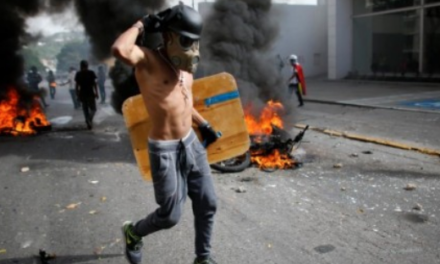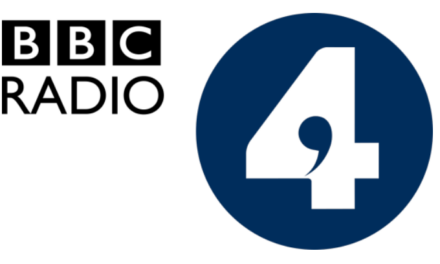Venezuela is now suffering severe gasoline shortages as the United States has cracked-down on fuel-for-oil swaps as part of its “maximum pressure” campaign. While Venezuela once refined all of its gasoline and even exported it, over the past ten years it has become ever more dependent on imports as a lack of maintenance has led to accidents, dramatic explosions and idled capacity. While the 2019 sanctions on commerce with Venezuela’s oil company effectively prohibited gasoline exports to Venezuela, a number of international oil companies have paid for Venezuelan crude with gasoline. Thus, while there have been fuel shortages in the past year, fuel swaps have maintained a modicum of supply.
The shortage has effectively put the military in charge of deciding who gets gasoline and have left many healthcare workers waiting in long lines. Food production and distribution is also significantly affected. While diesel has been left out of the new U.S. measures, much of Venezuela’s distribution of fruits and vegetables uses smaller trucks that run on gasoline.
Stakeholders Assess New Context
In the span of one week, the U.S. shook up the Venezuela context with a series of judicial, diplomatic and military initiatives and left national and international political actors assessing the way forward (see last week’s VW).
The State Department’s announcement of the Democratic Transition Framework for Venezuela produced generally positive responses.
- The European Union (EU) praised the U.S. approach to sanctions presented in the plan. The EU insists that the actors in Caracas should “engage in a credible, representative and serious negotiation process, such as the one facilitated by Norway (Oslo Process).”
- The Lima Group said it welcomes “the important proposal” of the United States and stressed that it coincides with the objective of the Lima Group for the return of democracy in the country. The U.K., Colombia, Canada, Uruguay have praised it too.
- Secretary General of the Organization of American States Luis Almagro suggested he agrees with the idea of a Council of State without Maduro or Guaidó.
- The Maduro government condemned the European Union’s endorsement.
However, it was the drug trafficking indictments and counter-narcotics operation in the Caribbean (See WOLA explainer) that seemed to most capture the attention of the Venezuelan opposition.
- Leopoldo López exiled in the Spanish Embassy in Caracas since April 2019, in an El País op-ed said that the “narco-dictatorship” is using the coronavirus as a shield and excuse to remain in power, and increase social control and repression. He claims that it is not possible to have a truce with Maduro, and opposition forces should “restlessly fight him” on all fields.
- National Assembly President Juan Guaidó announced the creation of the Special Presidential Commission for Police Security and Intelligence. The new commission’s objective is to cooperate with international agencies in issues about drug trafficking and terrorism, and investigate issues of corruption and money laundering of the Maduro government abroad. Guaidó asked the commission to prepare a technical document on how Venezuela could return in the treaties with the Drug Enforcement Agency and other organizations in issues of drug trafficking. David Smolanski, Carlos Paparoni and Iván Simonovis, all currently residing in the U.S., will be the members of the commission.
It is important to remember that one of the original ideas guiding the push to declare Juan Guaidó as interim president was that calling for international military intervention in Venezuela could be justified as “international security cooperation decided upon by a legitimate and sovereign country.”
In an interview with El Tiempo, former U.S. anti-narcotics chief William Brownfield said that there was little appetite within the U.S. government for a full-scale military intervention in Venezuela, but “there are forms of indirect intervention using technology, of causing disruptions in the chain of command, of establishing humanitarian zones on the border, or launching precision attacks from thousands of kilometers away, if you will, that can send a clear message without putting the population at risk. It’s not that there is no appetite whatsoever. There are many options available.”
Opinion
- Michael Camilleri of the Inter-American Dialogue criticized the Trump administration’s new set of initiatives saying “the U.S. has in essence demanded the unconditional surrender of not just Maduro, but many of the most frequently mentioned candidates who might push him aside.”
- Camilleri and Michael Shifter wrote that the U.S. counter-drug operation off the cost of Venezuela was ill-timed in the midst of a global pandemic.
- Feliciano Reyna and Verónica Zubillaga and Temir Porras put forward a call for a political agreement to address the Covid-19 crisis.
- This week a group of non-governmental organizations, including Dale Letra, Provea, Reacin, CEPAZ and WOLA have been participating in a social media campaign using the hashtag #AcuerdosXLaGente.
Return Migration
- The Norwegian Refugee Council (NRC) reports that lockdown measures against COVID-19 in Colombia are preventing them from earning a living as the informal sector, leading to a wave of return migrants to Venezuela.
- While Nicolás Maduro said they would “receive them with love,” returning migrants have been quarantined in improvised shelters.
- The UN High Commission for Refugees and the International Migration Organization released a joint statement urging “the international community to boost its support for humanitarian, protection and integration program on which the lives and welfare of millions of people depend, including host communities.” They warn that with growing fear and social unrest due to the measures against the Covid-19, Venezuelan refugees and migrants are at risk of being stigmatized.
Coronavirus
- Transparency Venezuela points out that the Venezuelan population does not know the true impact of the coronavirus in the country as the government privileges partisan, political communication instead of the information provided by scientists and health experts.
Humanitarian Emergency
- Five Venezuelan human rights organizations (Funcamama, Acción Solidaria, Prepara Familia, Centro de Justicia y Paz (Cepaz) and Unión Afirmativa) presented an initiative called “Con Ella” that seeks to strengthen and prioritize humanitarian programs for women and girls in Venezuela.



